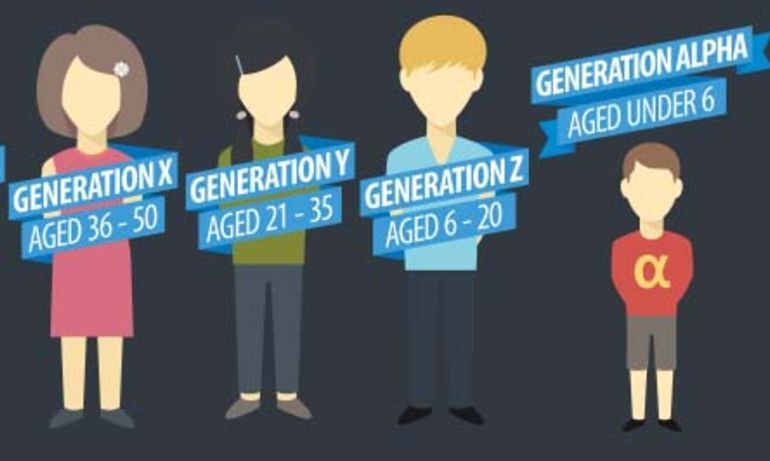Creating and developing a high-performing team is fundamental to business success. Get it right and you have high levels of engagement, you optimise productivity and you’re in a strong position for growth. Get it wrong you have discourse, inefficiency and poor performance.
Our ever-changing, competitive and uncertain world provides a challenging backdrop to all of this, but we are now also moving into a time where we will have 4 or 5 generations in our workforce, each influenced by the major historical events, social trends and cultural phenomena of its time. These forces have shaped the values, expectations and priorities of the different generations so ensuring they are all happy and engaged at work, is arguably another challenge for our leaders now and in the future.
Broadly speaking the generational cohorts are split into: Veterans (1939-1947), Baby Boomers (1948-1963), Generation X (1964-1978) and Millennials (1979-1991). There is also a new generation which will soon enter the workforce, Generation Z, who are under 16 years old.
Last week, our Leeds HR Leadership Forum discussed some of the challenges and benefits of this phenomenon and whilst we didn’t have all the answers we enjoyed an open and engaging discussion that gave us all plenty of food for thought and for me, personally, excitement and optimism for the future.
I’d be lying if I said we didn’t explore the various stereotypes of the different generations. You know the ones. Veterans and Baby Boomers are slow to change but loyal and hard-working, believing the younger generations need to ‘pay their dues’ etc… Millenials are ‘tech-savy’, seek work-life balance and purpose in their work but require immediate gratification and feel ‘entitled’; while Generation X are comfortable with change and self-reliant they are cynical and harbor an inherent distrust of establishments.
Undoubtedly some of these clichés will ring true for some but as we discussed last week, there’s a real danger in sweeping people under ‘headings’ and using assumption and our unconscious biases to influence key business decisions around how we attract, reward and develop our people. Of course we need to understand the different factors that motivate our employees, but surely doing more to engage each person, as a unique individual, will reap bigger rewards for the organisation and individual in the long run?
Maybe then the multi – generational workforce ‘challenge’ isn’t really anything new at all? Maybe we simply need to accelerate the facilitation of environments where, regardless of age or any other characteristic, people are encouraged to learn from one another and able to bring their best selves to work each day? After all, if you follow Dan Pink’s theory on motivation (Drive: The Surprising Truth About What Motivates Us, 2009) once people are paid enough to take the issue of money ‘off the table’, they want autonomy (desire to be self-directed), mastery (desire to get better) and purpose (desire to do something that has meaning and importance).
What do you think? How are you embracing these differences within your workforce for the benefit of the organisation and the individual?
(photo – courtesy of McCrindle)
